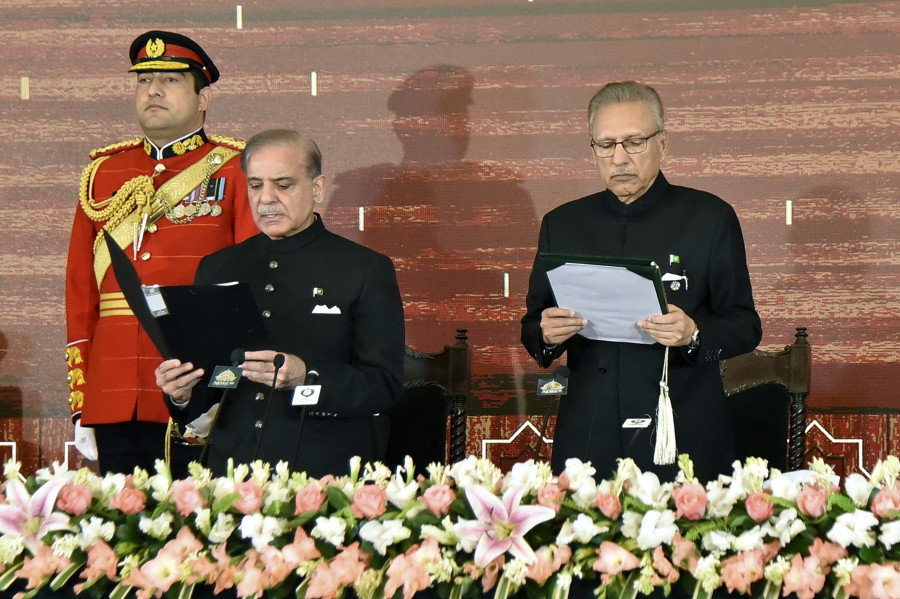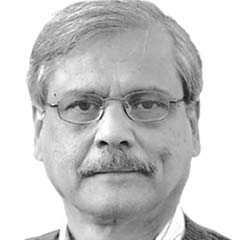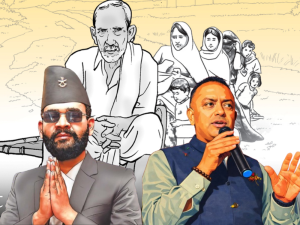Columns
The second coming
Pakistan’s economy cannot be fixed without political stability in the country.
Zahid Hussain
The newly elected prime minister has set an ambitious target for his minority government propped up by half a dozen disparate groups. He vows to steer the country back to the shore but with the hazard lights on. It is the second launching of Shehbaz Sharif just a few months after the end of his first stint.
The challenges before the tenuous coalition are, however, much more daunting this time. His first term didn’t have much to show for it, and it remains to be seen how his new government will sail through the choppy waters.
It is not an auspicious start for the new dispensation, with controversy over the legitimacy of the February 8 general elections still raging. The pandemonium witnessed on the floor of the Lower House following the election of the prime minister is indicative of the worsening political polarisation in the country, making it harder to achieve the much-needed political stability.
Shehbaz Sharif’s call for political reconciliation has received no traction in the prevailing atmosphere, as the opposition has been pushed against the wall, with scores of political prisoners, including women, still languishing in prison without trial. The latest decision of the Election Commission depriving the Pakistan Tehreek-e-Insaf-supported Sunni Ittehad Council of its share of reserved seats in the National Assembly has further vitiated the atmosphere.
While the prime minister has yet to announce his cabinet, there is a lot of speculation on its composition. There are still some unresolved issues with coalition partners over the ministries, and it will be hard for Sharif to oblige all six allied parties. Meanwhile, the expected return of old faces doesn’t give much hope to the government to deliver in these challenging times. It’s obvious that the main decision lies with Nawaz Sharif, the elder brother, who would continue to call the shots. He seems to have his own preferences.
The most important question, however, is who will run the country’s economy. Although the possibility of Ishaq Dar returning as economic czar is being ruled out, he is still not completely out of the race. His return to the post would certainly be bad news for the country’s economic future. However, there are some other names being considered for the job.
The real issue, though, is whether the government would be willing and have the capacity to take tough decisions, beyond doing a patch-up job, and initiate some fundamental structural reforms. A major challenge for the new administration would be to undertake the long-pending privatisation of the state-owned enterprises that have been a major drain on the economy. While the Pakistan Peoples Party has strong reservations, there seems to be no clarity on the matter among the other allied parties.
Privatisation has become a political issue and it may not be easy for a weak minority government, which is completely dependent on the allied parties for its survival, to take a decision on selling state-controlled ventures, including the national carrier PIA and Pakistan Steel Mills, which have been costing the exchequer billions of rupees just to exist.
However, in the economic sphere, the most important question is how to deal with the exploding debt situation. In his inaugural speech, the prime minister lamented that the entire federal government expenditure is met through borrowing. He said little is left in the federal government’s kitty after the transfer of funds to the provinces. That is certainly a major cause of the country’s financial woes.
He has hinted at reviewing the National Finance Commission Award in order to deal with the burgeoning debt burden. But for any review of the NFC award, there is a need for consensus among all the provinces. That seems improbable in the present situation, with the provinces being ruled by different political parties, especially with KP under the PTI’s control. Any change in the existing arrangement would need political reconciliation, which doesn’t seem to be happening in the current atmosphere of confrontation.
Another challenge for the Sharif government would be to negotiate with the IMF for a $6 billion Extended Fund Facility, which is critical to stabilising the economy. Pakistan averted a default last summer because of a short-term IMF bailout, but the programme expires soon. Talks with the global lender for a new package are expected to begin in a few weeks. The Fund has already put forward its conditionalities and the government has to comply with these before any agreement.
Some of them are really unpopular measures that may have severe political repercussions for an already unstable government. The previous Shehbaz Sharif government with Dar as finance minister had a huge problem dealing with the IMF. The country was saved from default virtually at the last minute because of the IMF bailout package.
Interestingly, Shehbaz Sharif has now indicated that he would personally monitor the talks with the Fund. But it would be the commitment to undertaking hard decision-making that will matter, and not his direct interaction with Fund officials. And any possibility of Dar’s return would be disastrous.
The economy cannot be fixed without political stability in the country. Widespread allegations of manipulation of the election results in favour of the parties now in power make it impossible for any reconciliation effort to succeed. Without removing this distortion, there can be no political stability in the country.
It is not just the economy. There are also some pressing issues related to internal security that need broader national consensus among all stakeholders and require taking the opposition on board. The escalating militant violence in KP presents the biggest threat to national security. Political instability has given huge impetus to the militants to step up their terrorist attacks. They have particularly been targeting security personnel and installations. Any confrontation between the centre and the KP government led by the PTI would be disastrous for the country’s internal security.
With both government and opposition on the warpath, there seems to be no hope of things settling down. A government with a questionable mandate cannot bring the stability that is needed to steer the country to safer shores.
The writer is an author and journalist.
–Dawn(Pakistan)/ANN




 26.22°C Kathmandu
26.22°C Kathmandu



.jpg&w=200&height=120)











